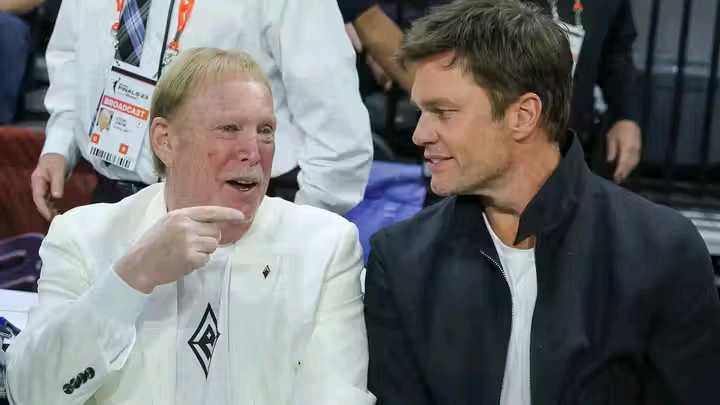Tom Brady, the most decorated quarterback in NFL history, has been poised for an exciting new venture off the field—ownership of an NFL team. Specifically, Brady’s pursuit of becoming a part-owner of the Las Vegas Raiders has captured widespread attention in the sports world. However, what seemed like a straightforward and inevitable transaction has recently faced significant setbacks. Brady’s ownership deal is far from being a guaranteed success, and it now faces challenges that could redefine his legacy as a businessman and owner. While the road to owning a piece of the Raiders was once seen as a smooth one, recent developments have cast shadows over the future of both the deal and Brady’s attempts to return to the NFL in an off-field capacity.
The Background: Brady’s Entry Into NFL Ownership
Tom Brady’s decision to pursue an ownership stake in the Las Vegas Raiders is seen as a natural progression for the football legend. After his highly successful career with the New England Patriots and Tampa Bay Buccaneers, Brady retired in early 2023, leaving behind a legacy filled with seven Super Bowl victories, numerous records, and a profound impact on the sport. However, retirement doesn’t necessarily mean stepping away from football altogether. Brady had hinted at potential involvement with NFL teams in an ownership capacity, and the opportunity with the Raiders appeared to be the ideal fit.
The Raiders, under the ownership of Mark Davis, had already proven themselves to be forward-thinking with the move to Las Vegas, a city that brought a new level of excitement and opportunity to the NFL. Adding Tom Brady to the ownership group would not only solidify the Raiders’ position in the new sports entertainment capital of the world, but also provide a massive boost in terms of brand value and publicity. Brady’s reputation, charisma, and business acumen would certainly add to the allure of the Raiders, attracting new fans and potentially opening doors to more lucrative commercial deals.
Brady, meanwhile, saw the Raiders as an ideal place to expand his post-playing career. His longstanding connection to the sport, his marketable image, and his involvement in various business ventures made ownership a logical next step. The former quarterback was also said to be eyeing a potential return to the league in a different role, perhaps even in a broader football executive position. For Brady, this would allow him to stay involved with the game he loves while building a lasting legacy in the ownership space.
The Major Setback: A “Reasonable” Delay?
Despite the enthusiasm surrounding Brady’s potential purchase of a share of the Raiders, things have not gone according to plan. Recent reports have indicated that Brady is facing significant hurdles in finalizing the deal. While the reasons for the delay remain somewhat opaque, it’s clear that external forces and internal complications have created unexpected roadblocks. The NFL’s ownership approval process, a bureaucratic maze that all potential owners must navigate, has been a key point of contention.
For starters, Brady’s prior involvement in the ownership group of the Las Vegas Raiders isn’t as straightforward as it might seem. The NFL’s ownership rules are strict, and past legal disputes have raised questions about whether Brady’s financial investments are in full compliance with league regulations. Brady’s prior business dealings, especially his partnership with crypto companies such as FTX, have raised red flags for some NFL executives. These concerns about his financial associations—compounded by the fallout from FTX’s collapse—may have caused hesitations among league officials.
Adding to the complexity of the situation is the fact that Brady’s influence could interfere with other stakeholders within the Raiders’ organization. Some analysts have raised concerns that Brady, given his high profile and immense stature in the football world, might attempt to use his leverage to influence football operations or team decisions. Mark Davis, who currently leads the Raiders, is known for being a hands-on owner, and many believe that Brady’s presence could lead to tension or power struggles between him and the existing management structure.
Ownership, Power, and Control: The Fine Print of NFL Deals
- The structure of NFL ownership deals can be extraordinarily complicated. While Brady’s name and marketability make him an attractive partner for any NFL franchise, there’s much more at play than simply putting his name on a contract. NFL ownership is not just about throwing money at a franchise and acquiring a piece of it—it’s about strategic influence, long-term vision, and managing the intricacies of a billion-dollar business. Brady would need to prove not only his financial stability but also his willingness to adhere to the complexities of managing an NFL franchise.
